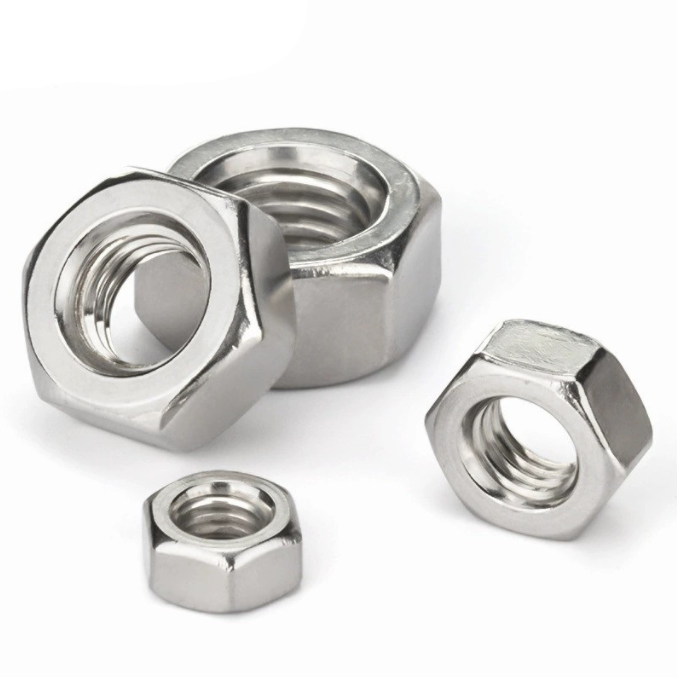

Self-Drilling Screw Socket Applications and Installation Techniques for Efficient Fastening Solutions
Dec . 05, 2024 23:59 Back to list
Self-Drilling Screw Socket Applications and Installation Techniques for Efficient Fastening Solutions
The Importance of Self-Drilling Screw Sockets in Construction and Manufacturing
In the fast-paced world of construction and manufacturing, efficient and reliable fastening solutions are paramount. One innovative tool that has gained popularity in recent years is the self-drilling screw socket. This component is a game changer for professionals who prioritize speed and strength in their assemblies.
Self-drilling screws are designed with a drill point that allows them to penetrate materials without the need for pre-drilling. This advancement offers significant advantages in terms of time-saving and labor costs. When paired with the correct socket, self-drilling screws provide a secure and precise fastening solution for a variety of applications.
Benefits of Self-Drilling Screws
1. Time Efficiency The foremost advantage of using self-drilling screws is the substantial reduction in installation time. Workers can drive screws directly into the material without pre-drilling, which eliminates the need for additional tools and decreases the overall labor required.
2. Versatile Applications Self-drilling screws can be utilized in a wide range of materials, including metal, wood, and plastic. This versatility makes them an ideal choice for various projects, from residential construction to industrial applications.
3. Cost-Effectiveness Although self-drilling screws might have a slightly higher upfront cost compared to traditional screws, their ability to streamline the assembly process often results in cost savings in the long run. Fewer tools are required, and labor hours are reduced, yielding a more economical overall solution.
4. Strength and Durability Self-drilling screws are engineered to offer high tensile strength. They create a durable bond that can withstand extreme conditions, which is particularly vital in construction projects that are exposed to the elements or physical stress.
self drilling screw socket

Importance of the Screw Socket
The role of the screw socket in the installation of self-drilling screws cannot be understated. A well-designed screw socket enhances the performance of the screw, providing improved grip and reducing the risk of stripping during insertion. Here are some key aspects of the screw socket
- Compatibility Screw sockets must be compatible with the specific type and size of self-drilling screws used. A mismatched socket can lead to inefficiencies and potential damage to the materials being fastened.
- Material and Design The socket's material should be robust enough to handle the torque required for effective fastening. High-quality chrome vanadium steel is often used, providing longevity and strength. Additionally, sockets come in various designs, such as magnetic or hex, allowing for flexibility depending on the specific application.
- Ease of Use A well-designed screw socket is easy to use with power drills or manual screwdrivers. This feature is particularly important in fast-paced work environments where efficiency is key.
Conclusion
In conclusion, self-drilling screw sockets represent an essential advancement in the field of construction and manufacturing. Their benefits, including time efficiency, versatility, cost-effectiveness, and durability, make them an indispensable component in modern assembly methods. As industries continue to evolve and demand faster, stronger, and more efficient solutions, the popularity of self-drilling screws and their corresponding sockets will likely continue to rise.
By embracing these technological advancements and understanding the critical role that screw sockets play, professionals can enhance their operational efficiency, ensuring that their projects are completed on time and to the highest standards. Whether you are a contractor, an engineer, or a DIY enthusiast, incorporating self-drilling screw sockets into your toolset will undoubtedly equip you with a significant advantage in your endeavors.
Latest news
-
High-Strength Hot Dip Galvanized Bolts - Hebei Longze | Corrosion Resistance, Customization
NewsJul.30,2025
-
Hot Dip Galvanized Bolts-Hebei Longze|Corrosion Resistance&High Strength
NewsJul.30,2025
-
High-Strength Hot-Dip Galvanized Bolts-Hebei Longze|Corrosion Resistance&High Strength
NewsJul.30,2025
-
Hot Dip Galvanized Bolts-Hebei Longze|Corrosion Resistance&High Strength
NewsJul.30,2025
-
Hot Dip Galvanized Bolts - Hebei Longze | Corrosion Resistance, High Strength
NewsJul.30,2025
-
High-Strength Hot Dip Galvanized Bolts-Hebei Longze|Corrosion Resistance, Grade 8.8
NewsJul.30,2025

